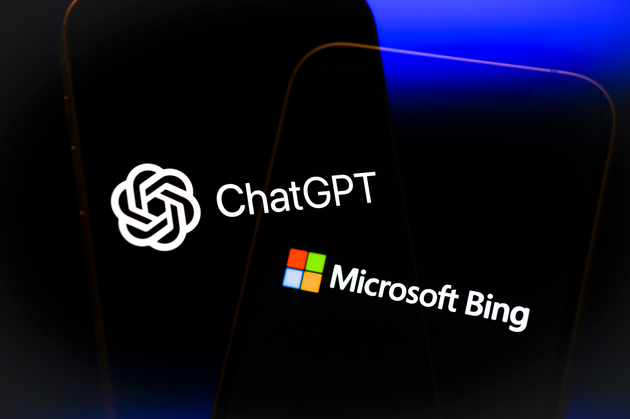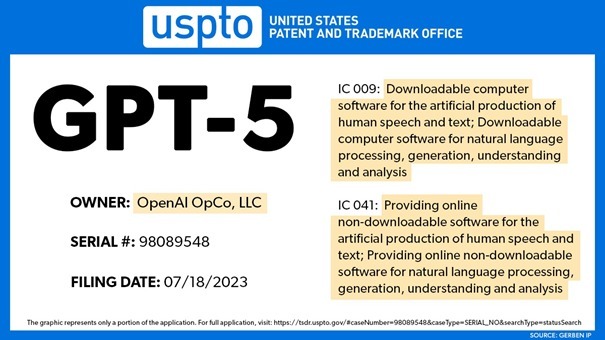
Photo/VCG
Recently, OPENAI OPCO, LLC applied for the registration of two "GPT-5" trademarks in China, causing widespread attention.
On Tuesday, August 8, local time, OpenAI introduced a new product GPTBot on its official website, which is a network crawler that can crawl network data on a large scale for training AI models, which can allegedly be used to improve future chat robot models.
NBD noticed that before the release of GPTBot, OpenAI also applied for the trademark of GPT-5 in the United States, which is considered to be an upgraded version of the current widely used GPT-4.

Photo/USPTO
GPT-5 has not been released yet, and there is no official information about its development or capabilities. However, based on some predictions and speculations, GPT-5 might have 100 times more parameters than GPT-3, which had 175 billion parameters. This means that GPT-5 could have around 17.5 trillion parameters, making it one of the largest neural networks ever created.
A developer named Siqi Chen tweeted that GPT-5 is expected to be trained by the end of this year and has the potential to achieve artificial general intelligence (AGI). AGI is the goal of creating an intelligent system that can perform any intellectual task without being explicitly programmed. If GPT-5 achieves AGI, it could significantly improve productivity and automate complex cognitive tasks.
Some reports believe that it is more likely that OpenAI will focus on improving the GPT-4 model, rather than putting all its resources into the next iteration of the large language model.
Meanwhile, OpenAI's recent data collection practices have also attracted external attention, especially around copyright and licensing issues. For example, in April 2023, the Italian regulatory agency accused ChatGPT of violating several EU privacy laws and subsequently "banned" ChatGPT. In June 2023, Japan's privacy regulator issued a warning to OpenAI for collecting sensitive data without permission. In late June 2023, 16 plaintiffs filed a class-action lawsuit against OpenAI, alleging that it obtained private information from ChatGPT user interactions.
In addition, OpenAI has also received a lawsuit from GitHub Copilot, in which the plaintiffs allege that the code generation tool violates the rights of developers because it scrapes their code without proper attribution. If these allegations are true, OpenAI and Microsoft, which is also named as a defendant, will violate the Computer Fraud and Abuse Act (CFAA), which has precedent for application in web scraping cases.


 川公网安备 51019002001991号
川公网安备 51019002001991号





